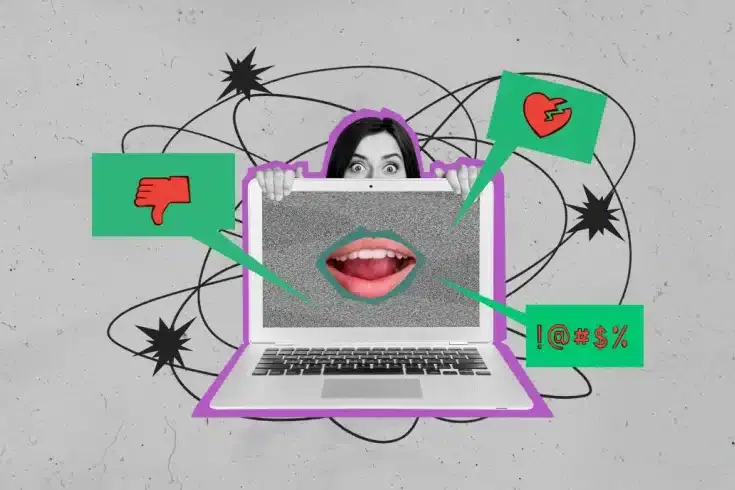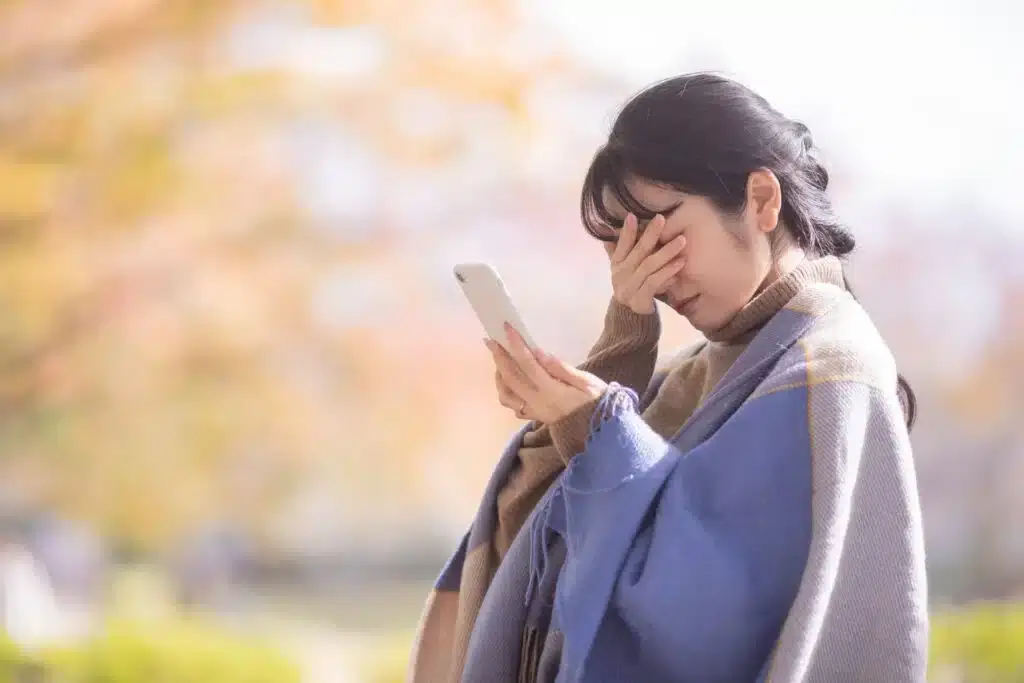What are the 'Japanese Author's Moral Rights and Protection of Honor or Reputation'?

As we have explained in another article on our site, copyright is different from other intellectual property rights such as patents. Without any application procedure, two rights automatically arise (principle of non-formalism) for the person who created the work at the time the work is created:
- Copyright (Japanese Copyright)
- Moral rights of the author (Japanese Moral Rights of the Author)
Moral rights of the author refer to the ‘right of publication’ (Article 18 of the Japanese Copyright Law), ‘right to claim authorship’ (Article 19), and ‘right to maintain the integrity of the work’ (Article 20). These rights collectively protect the personal interests of the author.
Furthermore, even if the act does not fall under these infringements, there is a provision that if the work is used in a way that harms the author’s honor or reputation, it is considered an infringement of the author’s moral rights.
Infringement of Honor or Reputation
Using a work in a way that harms the author’s honor or reputation is considered an infringement of the author’s moral rights. In response to such violations, the author can seek injunctions, damages, and measures to restore their reputation in civil law, and there may also be criminal penalties.
Article 113 of the Japanese Copyright Law
Paragraph 7: The act of using a work in a way that harms the author’s honor or reputation is considered an infringement of the author’s moral rights.
Although this provision is not technically defined as a right, it is referred to as the “presumed infringement of honor and reputation,” and is considered a right alongside the right of publication, the right to claim authorship, and the right to maintain the integrity of the work in the context of the author’s moral rights.
So, what kind of actions actually constitute “using a work in a way that harms the author’s honor or reputation”? What kind of actions are referred to when one’s built-up honor or reputation is infringed upon by the use of their work? Textbook examples include using an artistic work in a vulgar advertisement, but it’s not limited to this.
When a Photographer’s Honor or Reputation is Infringed

Recently, there was a case where a professional photographer sought damages from a defendant who, without permission, posted his photos on the homepage of an adult site (a site compiling information related to a bulletin board about sex shops) that the defendant operates, along with obscene images, for over a year.
The defendant uploaded a night view photo, which is the plaintiff’s work, onto the site. The plaintiff argued that this act infringes on his copyright (the right to reproduce and the right to transmit to the public) and that such use is a way of using the work that harms his honor and reputation as an author. The court recognized that the defendant did not clearly dispute the cause of the claim because he did not appear in court on the day of the oral argument despite being summoned and did not submit any prepared documents, including a written answer, and considered this as a confession.
Uploading Photos to an Adult Site
On top of that, the court acknowledged that the plaintiff is the creator and author of the photo in question, and that the defendant infringed on the plaintiff’s copyright (the right to reproduce and the right to transmit to the public) of the photo in question by reproducing it and uploading it to the defendant’s site. Furthermore, the court recognized that the defendant’s act, in light of the manner in which the photo in question was used on the defendant’s site, is an act of using the work in a way that harms the plaintiff’s honor or reputation, and is considered to infringe on the plaintiff’s moral rights as an author (Tokyo District Court, October 30, 2019 (Gregorian calendar year)).
Then, the court ordered the defendant to pay a total of 362,400 yen, including 32,400 yen as the usage fee when the plaintiff licenses the use of the photo, 300,000 yen as consolation money for the infringement of moral rights, and 30,000 yen as attorney’s fees, stating that “the damage caused by the act of copyright infringement is usually recovered by compensation for property damage”.
When a Work is Adapted and Honor or Reputation is Infringed

There was a case where the author of a reportage-style piece titled “Awakening” claimed that changes made to the basic story during its adaptation into a television drama infringed on the author’s moral rights. The author demanded damages and an apology advertisement from the drama’s producers and TV Tokyo.
The plaintiff’s work depicted the growth and independence of the protagonist, a construction company employee’s wife who was ordered to go to Saudi Arabia alone. Although she wanted to accompany her husband, she was not allowed to do so due to company circumstances. The story follows her efforts to make the trip possible and her realization that the couple, supposedly bound by love, were actually part of a single organization, with the husband working and the wife at home. This leads to their divorce.
The defendants created a script for the drama “Bad Wife Story? Don’t Let the Husband Go Anywhere! Stop the Overseas Assignment” based on this work. However, upon review, the plaintiff found that the script fundamentally altered the creative expression of the most important theme of the plaintiff’s work. The defendants, unable to obtain the plaintiff’s approval, hastily cut the original author’s name and the name of the original work from the drama, and aired the drama as it was.
Modification of the Script Against the Creative Intent
The script modified by the defendants was identical to the plaintiff’s work in terms of setting and plot development up to a certain point. However, the subsequent development depicted the protagonist working and living vibrantly, regretting her immature, childlike obsession with “love” as a wife, apologizing to her husband, letting him go on his assignment alone, protecting their home in his absence, and finding joy in her own life.
The court first recognized the usual usage fee for the original work of a television drama as 500,000 yen. Furthermore, it stated:
“Not only was the story and title of the plaintiff’s work changed in the adaptation to the television drama, but the plaintiff’s work, which was written as an expression of criticism of the control of corporations over employees’ wives, and as part of the plaintiff’s social activities and writing activities for the defense of women’s rights and independence, was altered into a story that could not be interpreted as such. The plaintiff’s work, which depicted a housewife awakening socially and seeking her own path to independence in response to her husband’s overseas assignment, was changed into a story about a naive wife with a narrow social perspective who makes a fuss about accompanying her husband, but eventually regrets and accepts her husband’s assignment. This was aired on one of Japan’s leading television stations during a time slot with a very large audience, from 9 p.m. for 54 minutes. It is recognized that the plaintiff suffered significant mental distress and damage to her social reputation and prestige due to the infringement of her right to maintain the identity of her work in the manner described above by the television drama.”
Tokyo District Court, August 30, 1993 (Heisei 5) Judgment
The court ruled that the use of the plaintiff’s work against her creative intent constituted an infringement of identity, and that the use of the plaintiff’s work in a manner that harmed the honor or reputation of the plaintiff, who had been engaged in social activities and writing activities for the defense of women’s rights and independence, infringed on the author’s moral rights. The court ordered the defendants to pay 1 million yen in compensation for emotional distress and a total of 1.5 million yen, and to publish an apology advertisement in the Asahi Shimbun’s nationwide morning edition.
When a Manga Artist’s Honor or Reputation is Infringed

There was a case where a plaintiff, who is a manga artist, claimed infringement of author’s moral rights and defamation against the defendant. The defendant had posted a caricature drawn by the plaintiff on an image posting site without permission, and then posted an article on Twitter suggesting that he had received a death threat from the plaintiff who had demanded its removal. The plaintiff sought compensation. Hidehiko Sato, a famous manga artist known for works such as “Umizaru”, “Black Jack ni Yoroshiku”, and “Tokko no Shima”, which deals with the special attack squad by human torpedo Kaiten, was running a manga production company and operating a site called “Manga on Web”. As part of his sales promotion activities, he offered a service where he would draw a caricature of a person of the customer’s choice on a colored paper and give it to customers who purchased his works on the site.
The defendant, through this site, purchased two of Sato’s manga and requested a caricature of Emperor Showa and the current Emperor Emeritus, one each. He then posted on Twitter, “I want to say thank you to the Emperor with everyone. Professional creators who can draw a caricature of the Emperor, please. This is Cool JAPAN Now.” He then took a photo of one of the caricatures, uploaded it to an image posting site, and posted on Twitter, “Entry number 1 for the Emperor Project, X. Umizaru, Black Jack ni Yoroshiku, Tokko no Shima”, and posted a link to the image posting site. He also uploaded the remaining caricature to the image posting site and posted on Twitter, “Yes, we have already received three entries! …It’s another work by X! It’s kind of moe. Moe Emperor.”, and posted a link to the image posting site.
Use of Caricatures for Political Projects
In response to this, Sato posted, “We try to accommodate our customers’ requests as much as possible, but please refrain from using them for political or ideological purposes. These illustrations were provided for personal use only.” The defendant then removed the photo of the caricature from the image posting site. However, the defendant posted on Twitter, “I tried the same method as the major media, using poison to control poison.” “I have something I want to convey, no matter what it takes.” “I was also threatened by X, and I’m being targeted from all over… (omitted)” etc.
Sato claimed that posting the caricature on the image posting site without permission infringed his copyright (right of public transmission) and was an infringement of the author’s moral rights as it used the work in a way that harmed his honor or reputation. He also claimed that “○ threat” meant “death threat”, and that suggesting that Sato had threatened to kill the defendant was damaging to Sato’s social reputation. He filed a lawsuit seeking damages.
The court first recognized the infringement of copyright (right of public transmission) for posting the photo of the caricature on the image posting site, and stated that shaping the appearance as if the plaintiff had agreed to the “Emperor Project” and posted the caricature, “could be considered as using the caricature in a way that harms the plaintiff’s honor or reputation, as it could lead to a one-sided evaluation of the plaintiff or his work from a political or ideological standpoint, and thus infringes the plaintiff’s author’s moral rights.” The court recognized damages of 200,000 yen for copyright infringement and consolation money of 150,000 yen for infringement of author’s moral rights (Tokyo District Court, July 16, 2013 (Heisei 25)).
Furthermore, in response to the request to remove the caricature from the image posting site, the defendant posted an article on Twitter that could be taken as a sarcastic response, saying “I was also threatened by A”, suggesting that he had received an abnormal, aggressive behavior or threat from the plaintiff, and defamed the plaintiff’s honor. The court also recognized consolation money of 150,000 yen for defamation, and ordered the defendant to pay a total of 500,000 yen.
https://monolith.law/reputation/spoofing-portrait-infringement-on-twitter[ja]
https://monolith.law/reputation/defamation[ja]
Summary
A work of authorship is a creative expression of the author’s thoughts or feelings. Therefore, it is crucial to avoid any actions that may misrepresent the author’s creative intent or ideological stance, or diminish the artistic value expressed in the work, through inappropriate use or form. If the reputation or prestige you have built is infringed upon by the use of your work, it is essential to consult with an experienced attorney and respond promptly.
Category: Internet





















